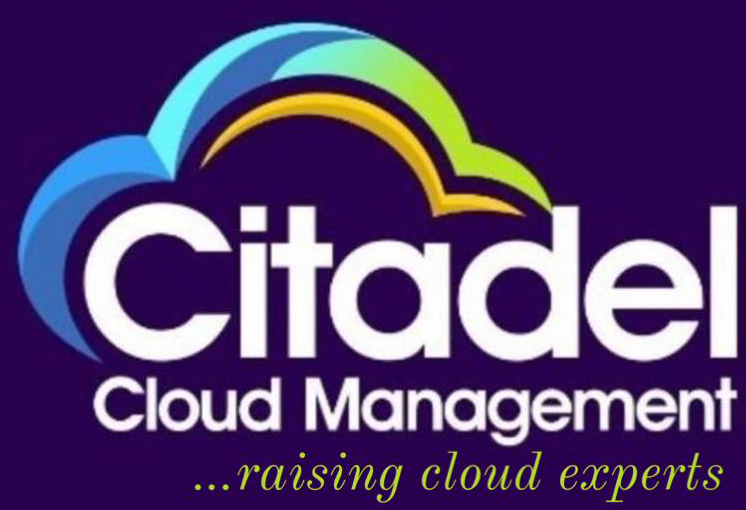Bootcamps have emerged as a transformative approach to education, particularly in the fields of technology and cloud computing. These intensive programs are designed to equip students with practical skills and knowledge in a relatively short period. A significant factor contributing to the success of bootcamps is their use of innovative tools and platforms that enhance the learning experience. This blog post delves into these tools and platforms, providing a comprehensive overview of how they facilitate effective learning.
Interactive Coding Environments
Interactive coding environments are a cornerstone of many tech bootcamps. Platforms like Codecademy, Replit, and Jupyter Notebooks provide students with hands-on coding experience in a controlled environment. These tools allow learners to write, test, and debug code in real-time, fostering an interactive and immersive learning experience.
Benefits of Interactive Coding Environments:
- Immediate Feedback: Students receive instant feedback on their code, helping them understand errors and correct them on the spot.
- Collaborative Learning: Many platforms support collaborative coding, enabling peer learning and teamwork.
- Practice and Application: Students can apply theoretical concepts through practical exercises, reinforcing their understanding.
Learning Management Systems (LMS)
Learning Management Systems (LMS) like Canvas, Blackboard, and Moodle are integral to the structure of bootcamp courses. These platforms offer a centralized location for course materials, assignments, and assessments, ensuring that students have easy access to all necessary resources.
Key Features of LMS:
- Content Organization: Course materials are systematically organized, making it easy for students to navigate through modules.
- Tracking Progress: LMS platforms allow both instructors and students to track progress and performance through various metrics and dashboards.
- Communication: Features like discussion boards, messaging, and announcements facilitate communication between students and instructors.
Virtual Classrooms and Video Conferencing Tools
With the rise of remote learning, virtual classrooms and video conferencing tools have become essential in bootcamp education. Platforms such as Zoom, Microsoft Teams, and Google Meet enable real-time interaction between instructors and students, simulating a traditional classroom experience.
Advantages of Virtual Classrooms:
- Accessibility: Students can attend classes from anywhere, making education more accessible.
- Engagement: Features like breakout rooms, polls, and chat functions enhance student engagement and participation.
- Recording and Replay: Sessions can be recorded, allowing students to revisit lectures and discussions at their convenience.
Project Management and Collaboration Tools
Project management and collaboration tools like Trello, Asana, and Slack are crucial in helping bootcamp students manage their projects and collaborate effectively. These platforms streamline the workflow, ensuring that teams stay organized and on track.
How Project Management Tools Help:
- Task Management: Tools like Trello and Asana allow students to break down projects into manageable tasks and track their progress.
- Communication: Platforms like Slack facilitate real-time communication and collaboration among team members.
- Integration: These tools often integrate with other software, such as GitHub for version control, enhancing the overall efficiency of the learning process.
Simulation and Virtual Labs
Simulation and virtual labs provide students with a risk-free environment to practice and experiment with complex concepts. Platforms like AWS Educate, Microsoft Azure Labs, and Cisco’s Packet Tracer offer virtual environments where students can work on real-world scenarios.
Benefits of Virtual Labs:
- Hands-On Experience: Students gain practical experience by working on real-world projects and scenarios.
- Cost-Effective: Virtual labs eliminate the need for physical infrastructure, reducing costs.
- Scalability: These labs can accommodate a large number of students simultaneously, making them scalable.
Gamification and Interactive Learning Tools
Gamification introduces game-like elements into the learning process, making it more engaging and enjoyable. Platforms like Kahoot!, Quizizz, and Codecademy’s badge system use gamification to motivate students and enhance their learning experience.
Impact of Gamification:
- Motivation: Game-like elements such as points, badges, and leaderboards motivate students to achieve their learning goals.
- Engagement: Interactive and fun elements keep students engaged and interested in the material.
- Reinforcement: Gamification reinforces learning by providing immediate rewards and recognition for achievements.
Measuring Success: Job Placement Rates and Career Advancement for Bootcamp Graduates
While innovative tools and platforms significantly enhance the learning experience, the ultimate measure of a bootcamp’s success lies in the job placement rates and career advancement of its graduates. This section explores how bootcamps measure success and the factors contributing to the career achievements of their alumni.
Job Placement Rates
Job placement rates are a primary indicator of a bootcamp’s effectiveness. High placement rates suggest that the program successfully equips students with the skills needed to secure employment in their chosen field.
Factors Influencing Job Placement Rates:
- Curriculum Relevance: Programs aligned with industry needs and trends tend to have higher placement rates.
- Employer Partnerships: Strong relationships with employers can facilitate job placements for graduates.
- Career Services: Comprehensive career services, including resume building, interview preparation, and job search assistance, play a crucial role in placement success.
Career Advancement
Beyond securing initial employment, the long-term career advancement of graduates is a testament to the value of a bootcamp education. Career advancement can be measured through promotions, salary increases, and career progression.
Key Elements of Career Advancement:
- Skill Development: Continuous skill development and upskilling opportunities provided by bootcamps contribute to career growth.
- Networking: Networking opportunities and professional connections made during bootcamps can lead to career advancements.
- Alumni Support: Ongoing support and resources for alumni help them navigate their career paths and achieve their professional goals.
Alumni Success Stories
Highlighting the success stories of alumni can provide valuable insights into the effectiveness of a bootcamp program. Testimonials and case studies showcase how the skills and knowledge acquired during the bootcamp have translated into real-world success.
Importance of Alumni Stories:
- Inspiration: Success stories inspire current and prospective students by demonstrating the potential outcomes of the program.
- Validation: They validate the bootcamp’s curriculum and teaching methodologies.
- Community Building: Sharing alumni success fosters a sense of community and pride among graduates.
FAQs
What makes bootcamps different from traditional education?
Bootcamps are intensive, short-term programs focused on practical skills and real-world applications. Unlike traditional education, which may span several years and include broad theoretical knowledge, bootcamps prioritize hands-on experience and job readiness.
How do bootcamps stay current with industry trends?
Bootcamps frequently update their curricula to reflect the latest industry trends and technologies. They collaborate with industry experts and employers to ensure that their programs remain relevant and aligned with market needs.
Are bootcamps suitable for beginners?
Yes, many bootcamps are designed to accommodate beginners. They often start with foundational concepts before progressing to more advanced topics, ensuring that students with little to no prior experience can keep up and succeed.
What kind of support do bootcamps offer for job placement?
Bootcamps typically offer extensive career services, including resume building, interview coaching, job search assistance, and networking opportunities. Some bootcamps also have partnerships with employers and may offer job placement guarantees.
How do I choose the right bootcamp for me?
When choosing a bootcamp, consider factors such as curriculum relevance, instructor qualifications, job placement rates, alumni success stories, and available support services. It’s also essential to evaluate the bootcamp’s format (in-person, online, part-time, or full-time) to ensure it fits your lifestyle and learning preferences.
Bootcamps have revolutionized the education landscape by leveraging innovative tools and platforms to enhance the learning experience. By focusing on job readiness and practical skills, these programs have demonstrated remarkable success in placing graduates in rewarding careers and facilitating their long-term career advancement.

